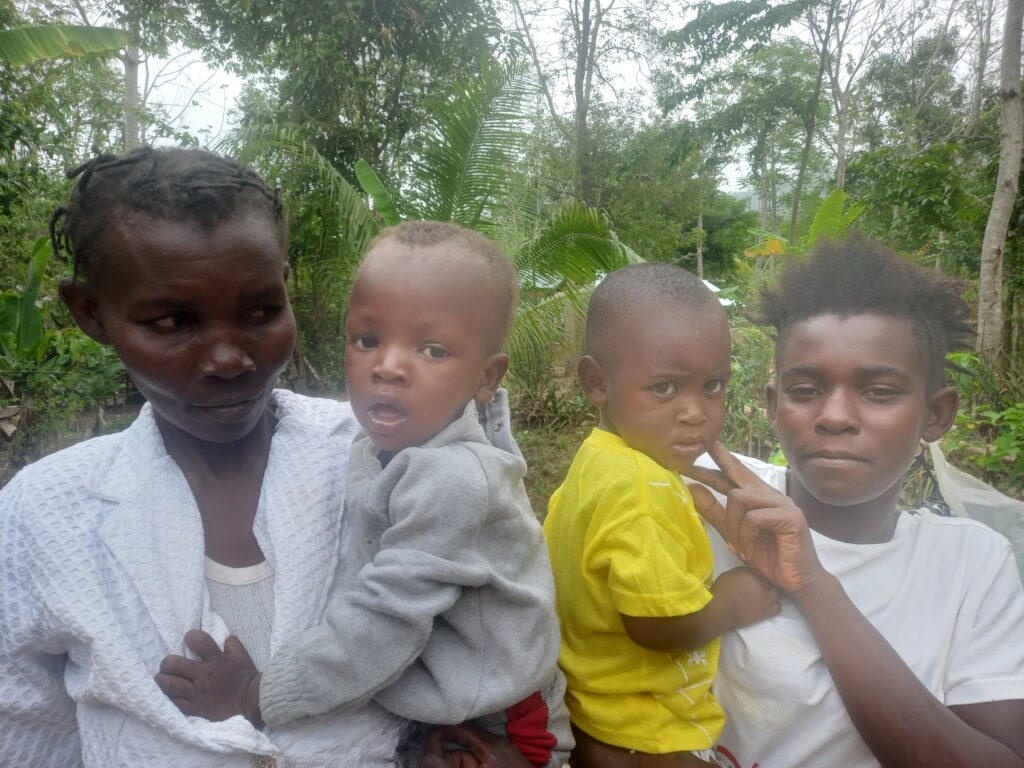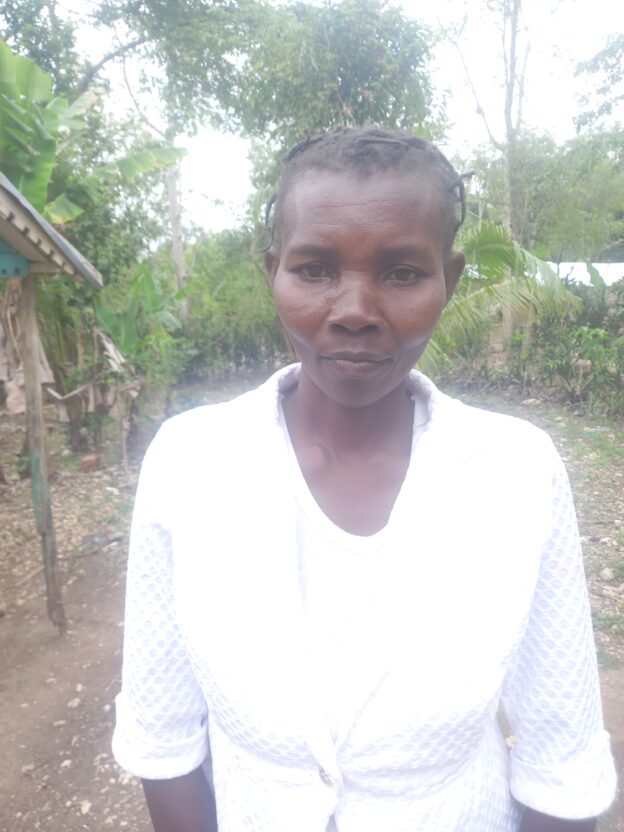Renette lives in Wòch Pab, on the southern edge of Pouli, just below the ridge that rises and separates Laskawobas from Savanèt. She and two older daughters joined the program in July of 2022.
She has been working hard in the program, but she does not feel as though she has made much progress so far. She received two goats, but they have not yet produced offspring, though both are pregnant.
She had originally hoped to receive goats and capital for small commerce from the team, but the significant increase in the cost of goats meant that by the time she had received the two that she and her case manager planned for her, there was very little money left to start a business.
But she didn’t give up. She knew she needed some way to earn money for her household. Her partner farms in the mountains above their home. He can be away for days at a time. And while he will usually return home with something from the garden, she cannot count on it, and it is just not enough. “He might bring some plantains, but even if he does, can I really ask the kids to eat nothing but plantains at every meal?”
She started selling kerosene. It is something she has sold often over the years. Many rural households depend on kerosene for light. But the business has changed in the last year or so. The crisis in gasoline and diesel distribution has impacted kerosene as well. Kerosene has been harder to find and much more expensive. Partly that means that she doesn’t always have access to merchandise. Partly it means that rural families are more likely to buy candles or just tolerate the darkness.
When she saw that her kerosene business wasn’t really working, she tried something else. She makes dous, a traditional Haitian sweet. It can be made with brown sugar and cashews, coconut, or sesame seeds. She generally makes hers with peanuts. She can produce it at home, and carry it around the neighborhood in a small bucket, calling out her wares and selling as she goes.
But her dous didn’t sell well, so she gave up on that business, at least for now. She remains determined to start again, however. “Things are hard, but chita pi mal.” That means sitting is worse. As difficult as things are, doing nothing is not an option.
She would like to sell beans. She’d buy them in the mountains above her home, either directly from farmers or at the small, remote markets up in the hills, and could sell them at the downtown market in Laskawobas, which is not far. But right now she does not have enough money to get started.
She would borrow the money she needs from her savings group. She has been good about saving. But she already has a loan out and cannot borrow again until she repays what she owes. She borrowed 15,000 gourds. Half of it went to pay school bills. Three of her children are in school. The other half went into the kerosene business, but that did not go well. She has made her first repayment, but is struggling to figure out how she will repay the balance.
A friend has offered to start selling her kerosene on credit, and she hopes to start this week. She will pay for it after it is sold. But a business like that will not make a lot of money. The prices these days are too high. And she will need income from that same small business to feed her family, pay the balance of her kids’ school bill, and complete work on her new home.


Renette’s problem-solving skills and determination will make her successful. We believe in Renette’s ability to overcome her challenges and to continue the path to a better life. We believe in Renette and her family! She deserves a life with dignity and hope for a better future.